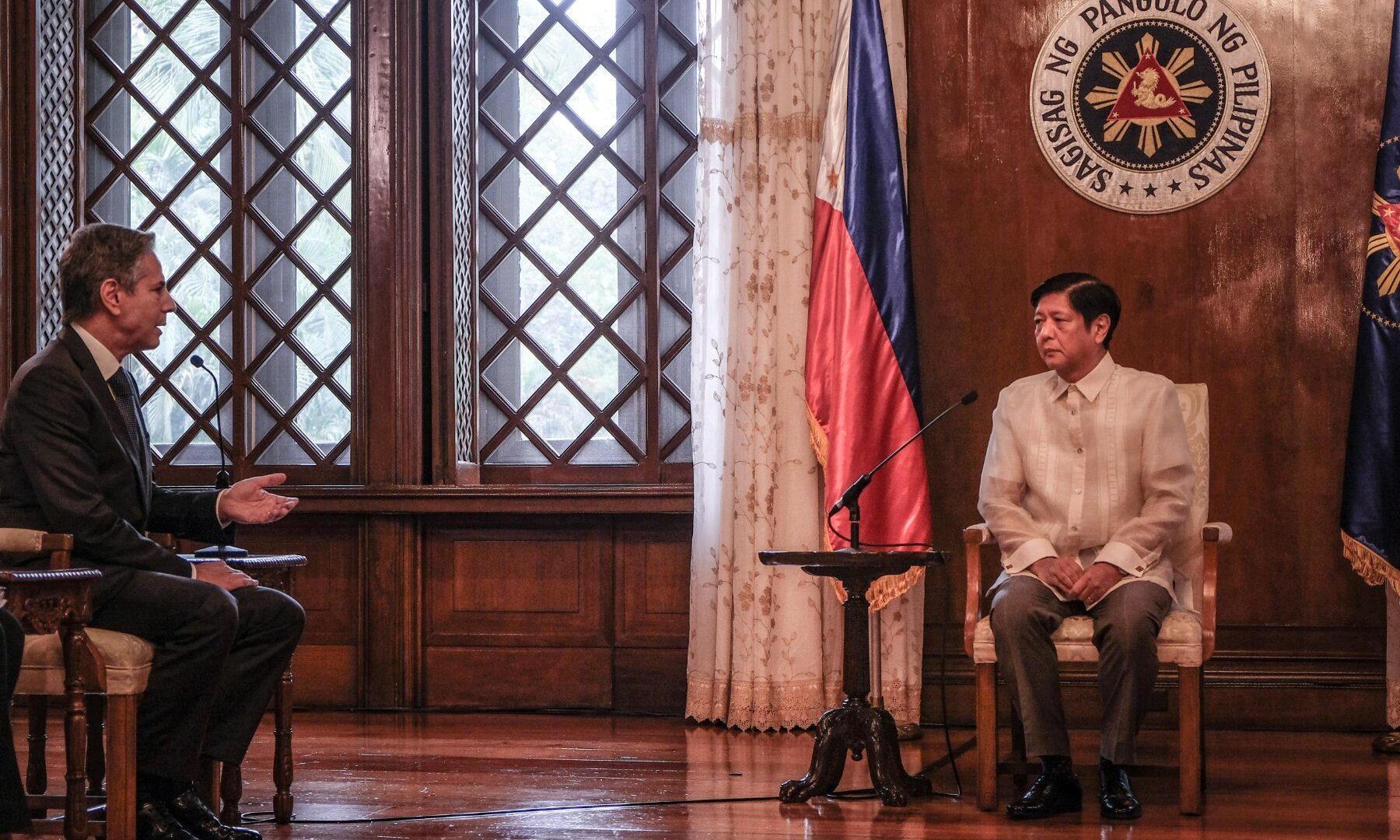President Bongbong Marcos met with US Secretary of State Antony Blinken on 6 August in a bid to bolster the countries’ “strong” alliance, as China conducts military drills around nearby Taiwan.
Blinken is the most senior American official to visit the Southeast Asian nation — a treaty-bound ally of the United States — since Marcos took office on 30 June.
“The alliance is strong and I believe can grow even stronger,” Blinken told Marcos as they met at the Malacañang Palace in Manila.
Marcos hailed the “special relationship” between the two countries.
The US has a security pact with the Philippines and has backed its former colony in increasingly heated disputes in the South China Sea with Beijing.
Blinken’s meeting with Marcos came after China launched a series of huge military exercises around Taiwan that have been condemned by the US and other Western allies.
During drills on 4 and 5 August, China fired ballistic missiles and deployed fighter jets and warships around Taiwan, about 400 kilometers north of the Philippines.
The war games continued on 6 August.
The People’s Liberation Army of China also declared multiple no-go danger zones around Taiwan, straddling major shipping lanes and coming within 20 kilometers (12 miles) of the island’s shores at some points.
The moves came in response to a visit to Taiwan by US House Speaker Nancy Pelosi, which prompted fury in China.
Marcos said Pelosi’s visit only demonstrated the existing “intensity” of the conflict, rather than adding to tensions.
Blinken arrived in Manila late 5 August after attending an Association of Southeast Asian Nations summit in Cambodia.
There, he condemned China’s military drills as “a significant escalation.”
Like other members of ASEAN, the Philippines does not formally recognize Taiwan and has shown no appetite for backing Taipei against China.
The Philippine Department of Foreign Affairs said on 4 August it was “concerned with the rising tensions” to its north and urged “restraint by all parties.”
“Diplomacy and dialogue must prevail,” it said in a statement.
The US has a complex relationship with the Philippines — and the Marcos family.
After ruling the former US colony for two decades with the support of Washington, which saw him as a Cold War ally, Ferdinand Marcos Sr. went into exile in Hawaii in the face of mass protests and with the nudging of the US in 1986.
As regional tensions rise, Washington is keen to preserve its security alliance with the Philippines, which includes a mutual defense treaty and permission for the US military to store defense equipment and supplies on several Philippine bases.
It also allows US troops to access certain military bases in the country.
Marcos has indicated he will strike a balance between China and the United States, which are vying to have the closest ties with his administration.
US relations rebounded with Manila toward the end of the tenure of Marcos’ predecessor, Rodrigo Duterte, who waged a brutal war on drugs that rights groups say left tens of thousands dead.
